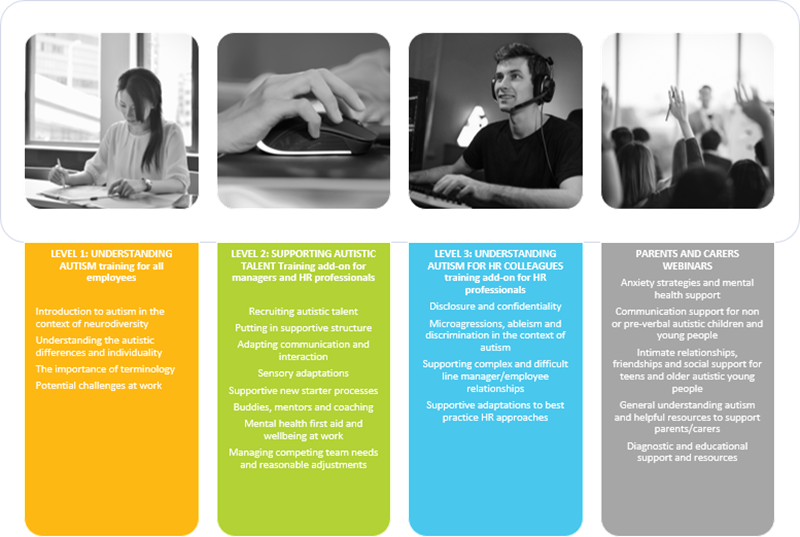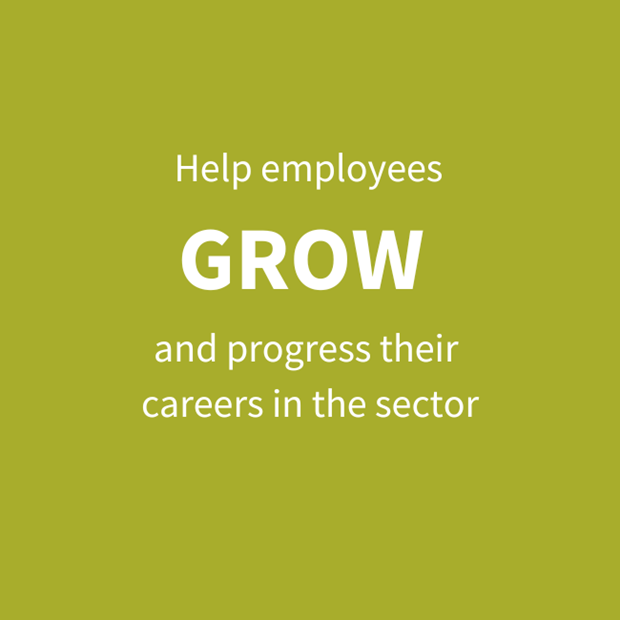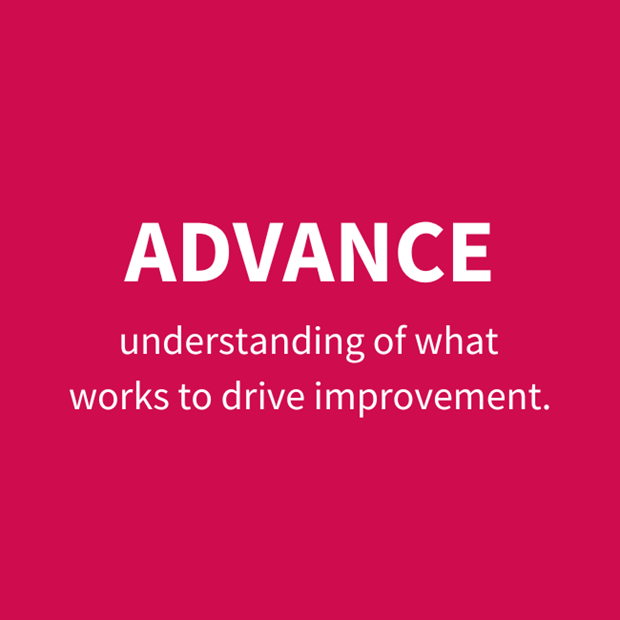DISABILITY & NEURODIVERSITY
Gender Inclusion | Race | Social Mobility | Age | Disability & Neurodiversity | LGBTQ+ |
This page is a space dedicated to acknowledging the diverse range of uniqueness that make up our community. Despite being distinct diversity characteristics, a significant commonality exists between disabled and neurodivergent individuals in terms or involuntary unemployment. Additionally, they are highly intersectional diversity characteristics, and the need to mask one’s true self at work can lead to further disadvantage including mental health issues.
We firmly believe that inclusivity enriches us all and that every individual contributes uniquely to our industry. Navigating the world with a disability presents unique challenges but also profound strengths. This page is designed to foster understanding, provide resources and highlight good practice.
- Sign up for the Government’s Disability Confident employer scheme and aim to become a Level 3 Disability Confident Leader and, as part of this, act as a champion within local and business communities.
- Ensure hiring and interviewing practices are aligned to the principles of the UK Government’s Disability Confident employer scheme.
- Support the #10000ableinterns initiative and pledge to offer paid internships to young disabled people.
- Consider developing partnerships with organisations, such as Ambitious about Autism, to announce job opportunities for neurodivergent individuals.
- Consider join industry peers in networks aimed at understanding how to create opportunities for neurodiverse people, such as GAIN (Group for Autism, Insurance, Investment and Neurodiversity)
- Review the inclusivity of communications (such as job adverts), removing phrases and imagery that are only relevant to some groups (such as assumptions that someone is able-bodied).
- Ensure that employees are made fully aware of when and how they can request reasonable adjustments and ensure that, when these are requested, they are notified of the outcome within two weeks.
- Promote the uptake of mental health awareness courses and train mental health first aiders.
- Offer further support and signpost employees to existing information on flexible working arrangements.
- Expand existing surveying of employees to a broader range of characteristics and ensure the results of these are published in an accessible format. Consider including neurodiversity as a separate characteristic.
- Encourage all employees to participate in data collections, ensuring they are given adequate time to complete any surveys. Ensure employees understand what the data will be used for and allow them to not answer any questions with which they are uncomfortable. Target guidance and support on those with additional potential sensitivities that may impact their attitudes to providing information (such as ongoing mental health challenges).
- Participate in initiatives designed to better understand the experiences of disabled employees and ensure that this acknowledges ‘hidden’ disabilities.
 Zurich wants to attract and retain the best talent while making their physical and mental wellbeing a priority. They have a strong focus on neurodiversity and have shared some of the steps they have taken below.
Zurich wants to attract and retain the best talent while making their physical and mental wellbeing a priority. They have a strong focus on neurodiversity and have shared some of the steps they have taken below.
In 2021 Zurich was founding member of GAIN, the Group for Autism, Insurance, Investment and Neurodiversity, which supports the careers of autistic employees and potential employees, and in 2023 were the first to become a GAIN ‘Industry Transformer’.
They knew that the neurodivergent colleagues within Zurich brought a strong and differentiated skillset. Working with GAIN enabled them to bring together insights from real life experiences alongside a wide range of resources – most recently a benchmarking exercise across areas such as recruitment, retention, leadership, culture and environment to highlight areas to celebrate but equally important, demonstrated areas where there is more work to be done.
In 2023 they also announced a 3 year programme with ‘Ambitious about Autism’ to develop a national programme supporting the mental health of autistic pupils in mainstream secondary school. Linked to that, Ambitious about Autism are also developing training for Zurich's staff. You can see examples here:

auticon is a ground-breaking IT/ Data consultancy whose consultants all have a diagnosis of autism, and who have made great strides in boosting diversity and inclusion in the insurance industry. In recent years, Zurich has worked with auticon on numerous different projects across Switzerland, the UK, and most recently with Zurich Insurance plc where teams are analysing claims data to create innovative frameworks and reporting tools.
They have a disability focused Employee Resource Group of some 300 people, and within that a group that focuses expressly on autism. Important and insightful reflections from some of their neurodivergent colleagues in the two articles here:
Find out how we are encouraging our industry to make changes to improve outcomes for autistic customers.



